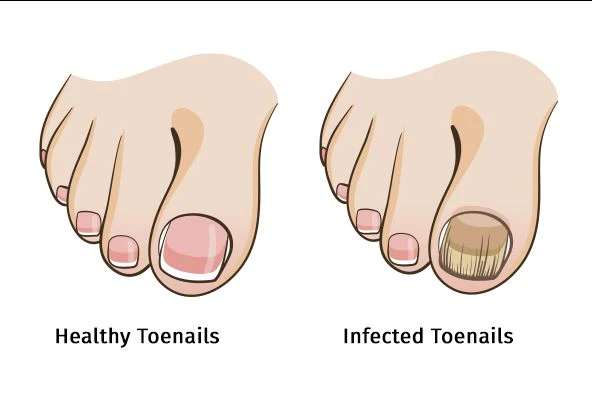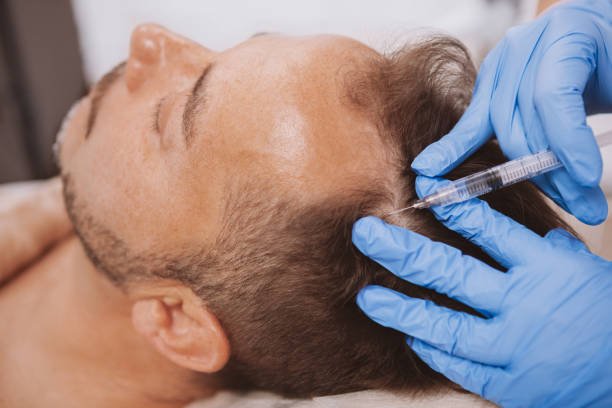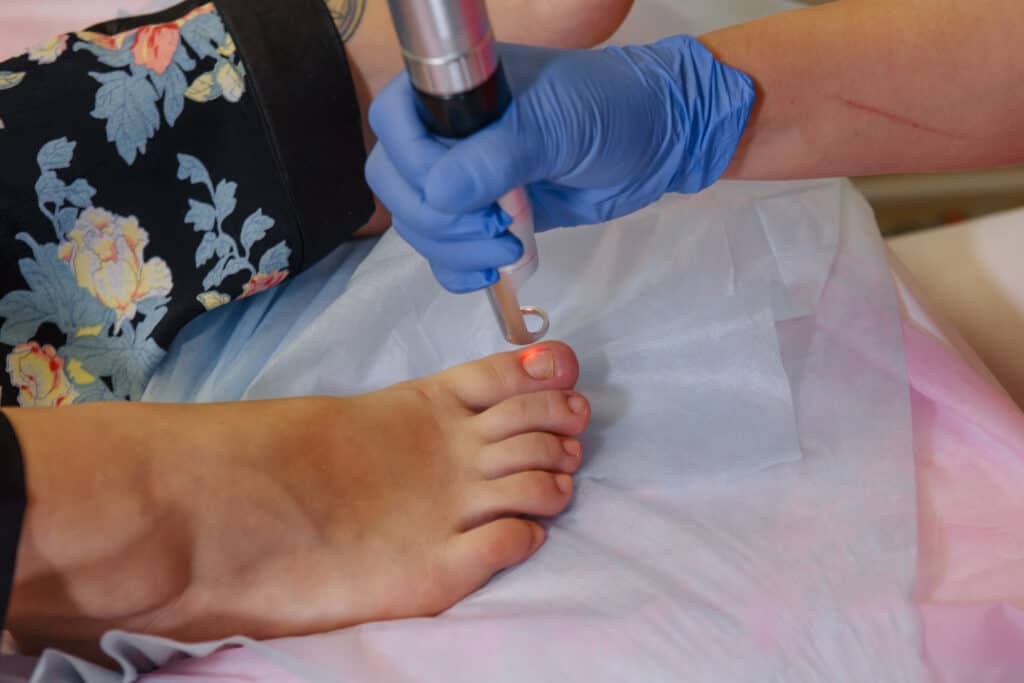Home Remedies vs Revitalise London Dermatology Clinic Nail Fungus Removal:
Introduction
Now that the best Nail Fungus Treatments are available at Revitalise London Dermatology Clinic, we have teamed up with some of the most renowned dermatologists worldwide to present this blog to you! Nail fungus, sometimes known as onychomycosis, is a fairly frequent disease that impacts many millions of people worldwide. Whilst there are a handful of home remedies which can be explored, many people are uncertain if these remedies are as effective as professional nail fungus removal treatments. Throughout this blog post, we will weigh-up the advantages and drawbacks of both options, giving you the information you require to make an informed decision on your Revitalise London Nail Fungus treatment journey..
What is Nail Fungus and how does Nail Fungus start?
Nail fungus is a fungal infection that impact the nails, allowing them to become discoloured, thickened, and brittle. The most common symptoms of nail fungus include:
- Yellow or brown discolouration
- Thickened nails
- Brittle or crumbling nails
- Unnatural nail shape
- Bad smell
Nail fungus can be caused by a number of different factors. This includes wearing tight shoes, sharing personal items such as nail clippers, or having a poor immune system. It is crucial to learn the symptoms and causes of nail fungus to best treat it and stop future infections.
Home Remedies for Nail Fungus
Many home remedies are told to be effective in treating nail fungus. Nail Fungus home remedies are popular and easy to access but it is important to note that their overall usefulness is often doubted by Revitalise London Dermatology Clinics Nail Fungus Dermatologists. Nevertheless, below we will highlight and look into a few common home remedies for nail fungus:
Tea tree oil for Nail Fungus Removal: Known for its antifungal and antibacterial properties, tea tree oil for Nail Fungus is a popular home remedy. However, the concentration of the oil is not actually potent enough to kill the fungus totally, and it could take months of regular application with very limited Nail Fungus Removal results.
Vicks VapoRub for Nail Fungus Removal: This over-the-counter product contains eucalyptus oil and menthol, which are believed to have antifungal properties. However, there is limited scientific evidence to suggest its effectiveness in curing nail fungus, and results may differ significantly from person to person.
Apple cider vinegar for Nail Fungus Removal: Diluted apple cider vinegar is sometimes used as a “foot soak”, with the idea being restoration of the pH balance of the skin and nails, preventing fungal growth. Yet, studies supporting its effectiveness are few, and it may only provide temporary relief instead of a long-term solution.
Garlic for Nail Fungus Removal: Garlic is actually known for its antifungal properties and is sometimes used topically or consumed orally to cure nail fungus. But, its use in treating nail fungus is not proven, and it may only provide minimal benefits.
Baking soda and borax: These common household items can help eliminate the fungus and stop its spread. Whilst they may provide a degree of relief, they are unlikely to be as efficient as professional treatments in eradicating the infection.
Listerine mouthwash for Nail Fungus Removal: The antiseptic properties of Listerine can help kill the fungus. Although, it was not specifically designed for treating nail fungus, and its effectiveness in this regard is debatable at best.
Oregano oil for Nail Fungus Removal: Oregano oil contains thymol and carvacrol, which in itself does have antifungal properties. While it may offer some benefits, the results are often inconsistent and may not be enough to eliminate the infection completely.
It is important to approach these home remedies with an open-mind. The effectiveness of these home remedies for nail fungus may vary with each person, and they might not work for everyone. Also, it can take months or even years of consistent application before any improvements are noticed, if any. In most cases, home remedies may only provide temporary relief and fail to actually address the root cause of the infection.
In the next section, we will discuss professional nail fungus removal treatments that have a much higher success rate and are backed by scientific evidence. These Nail Fungus treatments, available at Revitalise London Dermatology Clinic, offer a more reliable and long-lasting solution for those struggling with nail fungus infections.
Professional Nail Fungus Removal at Revitalise London Dermatology Clinic
While home remedies can provide temporary relief for some people, they might not be as effective or reliable as professional Nail Fungus treatments. At Revitalise London Dermatology Clinic, we offer a range of advanced, evidence-based solutions for nail fungus removal, including:
Topical antifungal medications for Nail Fungus: Prescription-strength topical medications are applied directly to the affected nails and can be more effective than over-the-counter alternatives. These medications typically need to be used for several weeks or months to see results.
Oral antifungal medications for Nail Fungus: These prescription medications work from within to eliminate the infection and promote healthy nail growth. Oral antifungal medications are usually taken for several months and have a higher success rate compared to topical treatments.
Laser for Nail Fungus: Perhaps the most effective and best nail fungus treatment, Laser Nail Fungus therapy targets and destroys the fungus without damaging the surrounding tissue, offering a safe and effective solution for stubborn infections. The procedure is typically painless, and multiple sessions may be required for total and complete results. The Revitalise London Laser Nail Fungus treatment encourages the total removal of the fungus as well as preventing nail fungus regrowth.
Nail debridement for Nail Fungus: In some cases, it may be necessary to remove the infected portion of the nail to facilitate the healing process. This procedure involves trimming and thinning the affected nail, allowing the antifungal medications to penetrate more effectively.
Professional treatments offer a higher success rate and faster results compared to home remedies. The professional nail fungus treatments are also very effective in providing long-lasting relief from nail fungus.
Revitalise London Dermatology Clinic: Our Prevention Tips for Nail Fungus
Preventing nail fungus is a vital aspect of maintaining strong and healthy nails. Here are some tips to help reduce your risk of developing nail fungus in the future:
Keep your feet clean and dry: Wash your feet regularly and thoroughly dry them, especially between the toes. Moisture can create an ideal environment for fungal growth.
Wear breathable shoes and socks: You should choose shoes and socks which are made from breathable materials to stop overly excessive sweating.
Avoid walking barefoot in public areas: Walking barefoot in locations such as public showers, pools, and locker rooms can facilitate the growth of fungi. Wear flip-flops or shower shoes in these areas to protect your feet and prevent nail fungus growth.
Trim your nails properly: It is important to keep your nails short and straight, and you should certainly avoid digging deep into the sides of your nails. This will be helpful in preventing ingrown nails and reducing the risk of fungal nail infections.
Disinfect your nail tools: Routinely cleanse and disinfect your nail clippers, files, and any other tools you are using to avoid spreading fungi.
By following these crucial preventive measures, you can vastly limit and reduce your risk of developing nail fungus and encouraging healthy, clean nails.
Making the Right Choice for Your Nail Fungus Treatment: A Closer Look at Revitalise London Dermatology Clinic
When we take a look at treating nail fungus, it is very important to weigh-up the effectiveness and reliability of your chosen method of Nail Fungus Removal. Whilst home remedies may seem appear feasible due to their natural ingredients and low costs, their use-case is often questionable, and their results can be very inconsistent. Given these limitations, professional and proven treatments offered by a reputable clinic like Revitalise London Dermatology Clinic is often the best decision.
Here are some factors to consider when deciding on your nail fungus treatment:
How severe is the infection?
Home remedies may only give short-term relief and could be ineffective for more complex cases. Professional Nail Fungus treatments at Revitalise London Dermatology Clinic addresses the main cause of the infection and offers a significantly higher success rate.
Time commitment: Home remedies will always demand consistent application over several months or years, with absolutely no guarantee of success. In contrast, professional treatments at Revitalise London Dermatology Clinic for Nail Fungs is way more efficient, providing much quicker results and ultimately saving you time.
Expert advice: Consulting with an experienced dermatologist at Revitalise London Dermatology Clinic ensures you receive personalised advice suited to you and a tailored treatment plan. Our Nail Fungus experts will assess your progress and provide ongoing support throughout the entire treatment journey.
Quality of treatments: Revitalise London Dermatology Clinic offers advanced, evidence-based Nail Fungus treatments that are proven to be more effective than home remedies. By choosing Revitalise London Dermatology Clinic, you can be sure in the quality and safety of the treatments provided to you.
Closing Thoughts
Nail fungus is a widespread condition that impacts millions of people, certainly influencing their confidence and quality of life. Whilst home remedies may appear like a convenient option, they usually aren’t ideal in terms of its effectiveness, providing limited and inconsistent results. In contrast, professional treatments available at Revitalise London Dermatology Clinic have been proven to be more reliable and offer long-lasting relief from nail fungus.
If you're struggling with nail fungus, it is critical to consider the information provided in this detailed Nail Fungus guide and make a more informed decision about your Nail Fungus treatment options. Remember that consulting with a Revitalise London dermatologist at our clinic can be useful in helping you choose the best course of action, making sure you experience a successful Nail Fungus treatment which is tailored to your specific needs.
Schedule a consultation with Revitalise London Dermatology Clinic today to discuss your nail fungus queries and explore our advanced, evidence-based Nail Fungus treatments. Together, we can help you achieve healthier, fungus-free nails and restore your confidence.



